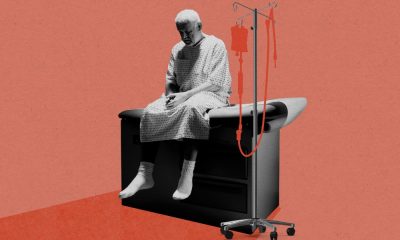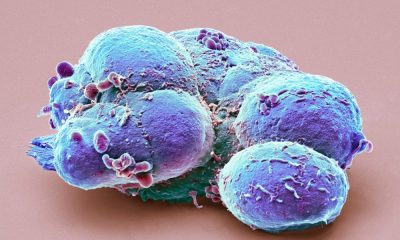Researchers have just stumbled upon drugs and compounds that could help mankind in its war against the novel coronavirus. Though the drugs have yet to prove their efficacy in treating SARS-CoV-2 infection among patients, they have already shown scientists that they are capable of preventing viral transmissions in the lab.
A Study On Existing Drugs
Scientists from the University of Michigan recently published their study on several drugs and compounds used for other purposes that could also help block or reduce COVID-19 infection in human cells. For the study, the team examined human cell lines treated with more than 1,400 individual FDA-approved drugs and compounds using artificial intelligence-powered image analysis.
Their analysis helped them narrow down the substances to 17 potential hits. Among them, seven were already recognized in previous studies for their ability to handle SARS-CoV-2, including remdesivir, which has already been approved by the FDA for emergency use in therapies of hospitalized COVID patients. Meanwhile, the other ten were newly recognized for their potential ability to deal with the novel coronavirus in cells. One of them is lactoferrin, a type of protein that is commonly used as a dietary supplement.
What Is Lactoferrin?
Lactoferrin has been described by experts as an iron-binding protein that is found in large quantities in colostrum and in breast milk, as well as in external secretions and in polymorphonuclear cells — immune cells typically released in response to infections, allergic reactions and asthma. As an iron-binding protein, lactoferrin is known to help regulate iron that is absorbed by the body from the intestine. However, it also has other uses in the medical field.
A study published in the peer-reviewed, open access journal Pharmaceuticals in 2016 highlighted the nutraceutical and pharmacological properties of lactoferrin in milk. The team behind the study noted the antimicrobial, immunomodulatory, anti-inflammatory and anticancer activities of orally administered bovine lactoferrin. They concluded that given lactoferrin’s different activities in the body, it is an ideal nutraceutical example, or a substance that is capable of improving health and providing medicinal benefits all at once.
Lactoferrin vs. COVID-19
In the COVID-centric study, which was published in the Proceedings of the National Academy of Science earlier this month, researchers found that the multifunctional protein is not only effective in preventing SARS-CoV-2 infection, it is also potent against the newer strains of the COVID-19-causing virus, including the delta variant that is currently wreaking havoc in many parts of the world due to its high transmissibility.
“We found lactoferrin had remarkable efficacy for preventing infection, working better than anything else we observed,” senior author Jonathan Sexton, PhD, who is an assistant professor of internal medicine at the U-M Medical School, said in a statement to Medical Express. He also reiterated their discovery that lactoferrin’s efficacy extends to the newer coronavirus variants.
The Takeaway
Although the scientists were able to spot lactoferrin and the other sixteen drugs’ ability to block or reduce SARS-CoV-2 infection in human cells, there is still a long way to go for most of these substances before they can be officially used for treatment and therapies against COVID-19. Sexton’s team is in the process of launching clinical trials to examine and determine the substances’ ability to reduce viral loads and inflammation in COVID-19 patients.
Nevertheless, the team’s recent discovery is another major step in the war against SARS-CoV-2. Finding existing drugs and compounds that could counter the virus cuts down the effort and resources needed by the scientific community to address the global health crisis. For Michigan Institute for Clinical & Health Research co-director George A. Mashour, MD, PhD, repurposing existing drugs significantly lowers the time it takes to come up with therapeutic interventions in the clinical setting.
















